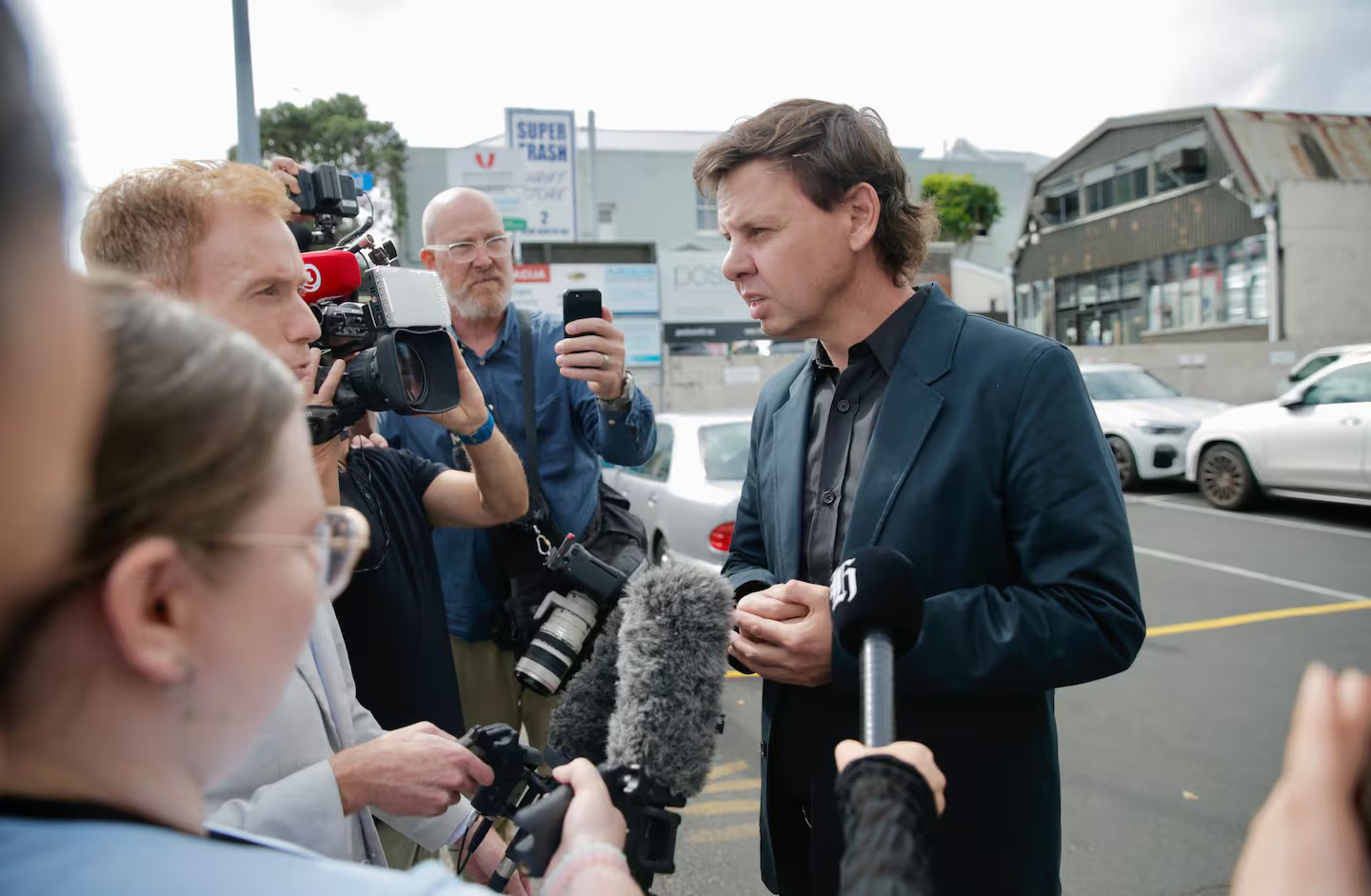
Broadcasting Minister Melissa Lee has been accused of "not knowing what she's doing" and took heat from Newstalk ZB's Mike Hosking when she tried to explain the Government's solution to protecting New Zealand's media companies, currently in turmoil.
TVNZ is cutting four major programmes and the final Newshub 6pm bulletin is scheduled for Friday, July 5. The closure includes the Newshub website and up to 300 job losses.
An Advertising Standards Authority report released yesterday proved revenue has continued to fall for media companies: traditional television advertising revenue fell from $517 million in 2022 to $443m in 2023. TV digital revenues rose - from $82m in 2022 to $91m in 2023 - but not enough to offset the fall in revenue.
Several guests were asked whether the Government wasresponsible for saving jobs in the media industry. Former TVNZ and TV3 journalist, Bill Ralston wasn't confident in its capacity to do so.
"Melissa Lee has no idea what she is doing really," he told Newstalk ZB this morning.
"She's just said her hands are tied. The Government could step in and not necessarily prop up TVNZ further than it is, but I have no idea. You'd have to have a serious policy work to figure that one out."
Lee told the Mike Hosking Breakfast Show she was only in charge of the settings and regulations that the media companies were subject to, turning her attention to the Broadcasting Act of 1989, which she said she was keen to modernise.
"The [act] was designed well before the internet - it literally doesn't regulate certain things," she told Hosking.
"The way that New Zealanders and others around the globe... consume media has changed. They don't just sit down in front of the TV box at 6pm to watch the news, news is 24/7 but the regulations haven't kept up to date with modern day technology.
"I think we need to bring regulations up to speed and make it fit for purpose."

Hosking asked the minister if she was referring to companies like Meta being willing to pay for New Zealand's media content, an idea the social media giant has rejected in several countries already.
Lee said she was tracking the Fair Digital News Bargaining Bill, now before a select committee and which would require tech companies such as Google and Meta to pay for news content it monetised on their sites.
Only Google has signed agreements with some media companies here, and they only last for up to five years.
The minister said she was "open-minded" about the bill and said that if big companies were profiting from New Zealand's news content, they needed to pay a fair price.
Hosking cited Canada and Australia, which had tried to force Meta to pay for its news content and failed. Lee reiterated that the bill was before select committee and would make a decision next month.
"One thing I've always said is, if the companies pick up the advertising revenues, they should pay," she told Hosking.
But Hosking pushed Lee on the fact no country had found a way to force media companies like Meta to pay for news content, because they don't care about the repercussions of not being able to publish news.
"I think New Zealand isn't an outlier, I think every other country is dealing with this," said Lee.
Hosking asked Lee to name one country that had managed to make a deal with Meta work, but the minister Meta "wasn't in the business of news" and said the public needs "to look at it as a whole".
"It's not just Meta or Google, there are many tech companies that are operating and you need to make sure that there is legislation fit for purpose that guides the whole industry," said Lee.
Hosking asked Lee to name a country that had done that successfully.
"Well, hopefully New Zealand," said Lee.
Hosking rubbished the minister's suggestion, claiming that a country at the bottom of the world with five million people would never be able to accomplish what Canada and Australia weren't able to do.
"Well, I'm hoping what the select committee brings back is actually a pathway forward," the minister responded.

Hosking told Lee that her comments were "buzz talk" and suggested the select committee didn't provide any meaningful solution to the revenue troubles. He asked what material changes would be made to the Broadcasting Act, such as whether the removal of Kordia transmission fees were on the table.
"There are many, many things in the cabinet paper. I won't go into the details of it - but there are many proposals we need to look at," said Lee.
Newshub journalist Patrick Gower was among the big names in television whose role has been made redundant under the media company's closure. He told Newstalk ZB he didn’t know how many of the up-to 300 people losing their jobs would remain in media.
“Who knows? I mean, even for myself, I’ve got no bloody idea what I’ll do next.”
Gower said he hoped a lot of his colleagues would remain in the field, but recognised it was a difficult time for the industry in New Zealand.
“It’s that simple, mate, not everybody can survive. But we’ve got to be optimistic, we can’t kind of give in. I can say for myself, I’m determined to get back out there," he said.
Hosking asked Gower how many of the employees likely saw the closure coming.
“It was always a possibility when we came in under the big company, particularly Warner Brothers Discovery when they’d merged. Some sort of shutdown was always possible," said Gower.
“I’ve survived a couple myself in the last 14 years or we’ve been very, very close. So it was always on the cards.”
Take your Radio, Podcasts and Music with you









